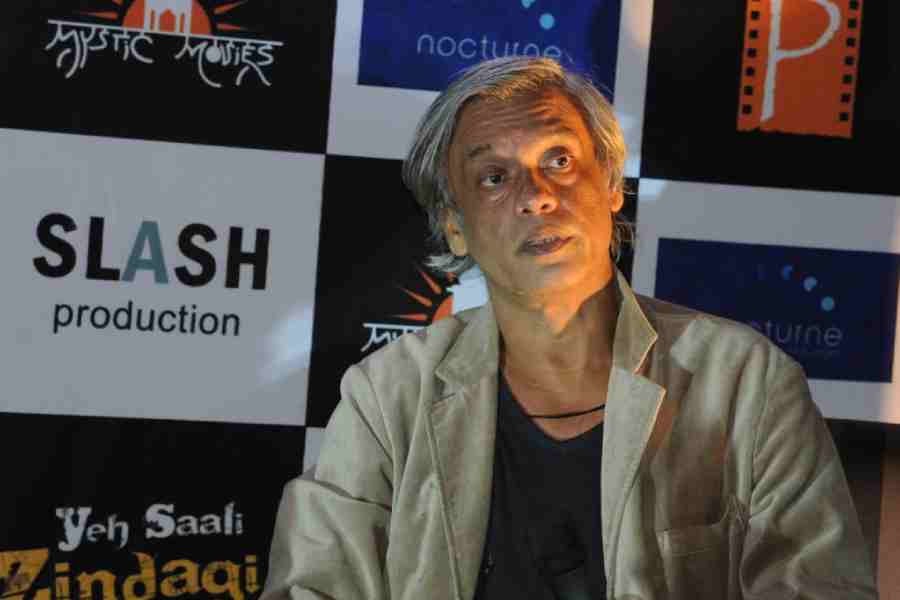A new story is being scripted in Bollywood. Of course, it isn’t a tangible script but is one that’s taking shape silently, behind the scenes.
The subplots of this script have been playing out over the last few months. The “comeback” of Shah Rukh Khan with Pathaan in January, his voiceover for the new Parliament building inaugural video, his latest Jawan, thunderous and ridden with references. And how two politically relevant films — Bheed and Afwaah — slid into the theatres silently and slid out even more silently, within a matter of days. Of course, they later resurfaced on streaming platforms and received their due applause.
Almost no one in the industry is willing to talk about the script that needs to be talked about. But there are always exceptions; filmmaker Sudhir Mishra is one.
“People are self-censoring, they are petrified and frozen,” he tells me over a video call. “They imagine some danger and don’t act because of it. One has to step out and say this is my medium, my land. I am allowed to talk. It is among my responsibilities,” says the grey-haired gentleman, matter-of-factly.
Mishra wrote and directed Afwaah, which portrays the anatomy of rumours via social media, something we are only too familiar with.
So was there any hesitation from his actors while putting it together? “It was surprisingly easy to get my cast together, just like any other film,” he replies. “A lot of people are also feeling what I am feeling. If somebody puts together something like that, many people want to participate, in some way.”
I ask him about the news reports claiming Afwaah lead actor Nawazuddin Siddiqui stayed away from the promotions because he was not happy with the distribution. “He kind of disappeared on us,” Mishra laughs, adding that the actor also did not do many post-production interviews, apart from one or two.
What about the censor board? Surely there must have been trouble there? “The censor board at first said no, then passed it on to the revision committee. I accepted the cuts and changes they suggested. It was better than the film not being shown at all,” Mishra explains.
The veteran filmmaker is not afraid of the censor board. He says, “I have faced censorship with all my films.”
Despite the ease with which he says it all, Afwaah wasn’t something many filmmakers can pull off. “A lot of people in Delhi ask, ‘how the hell did you get it passed?’” he says.
Curiously, the film was released on May 25, the same day as Vipul Shah’s The Kerala Story. As the latter grew from strength to strength, Afwaah slid into a coma, although it earned rave reviews as one of the bravest films to be made in these times.
Mishra says, “I was told there would be two shows across 200 properties across India. However, the shows were apparently at a very wrong time (odd hours). It turned out it wasn’t 200, some then said 60... I am not sure, there was so much vagueness. Now it’s on Netflix, it’s doing quite well.”
He then adds, “The distribution circuit may not agree with you; that is another kind of censorship that goes on.”
The silences certainly are deafening. In a recent podcast with director-producer Vivek Agnihotri, Mishra repeatedly talks about the culture of conversation and its disappearance. In the earlier days, he says, a lot of industry people would speak out — “Yusuf Saab, Dev Anand, Raj Kapoor, Manoj Kumar... Aajkal zyadatar log khamosh hain.” He quotes a line from his film Khoya Khoya Chaand — “Yeh industry kisi ke baap ki bapauti nahin.”
Mishra is clearly unafraid to address the dividing lines in the industry. Many people talk a lot on social media and in private conversation, he says, but nothing reflects in their work. “The liberal or Left-minded people do not agree with each other all the time and that’s all right, that’s who we are. But we need to stand by each other irrespective of whether we totally agree with each other or not. That committed audience is not there either.”
An industry insider had once commented, “Sudhir is not a fake liberal. He’s the real thing.” Perhaps few would like to counter this.
Mishra says, “If people like me — those who have been around for a long time — back off and don’t do anything, what would the young think? And if you start something, it may catapult, create a chain reaction hopefully. Younger directors may see, and the environment may change. At least one can hope.”
So, back to the mega script. In a recent interview, Naseeruddin Shah said, “It’s dis-
turbing that films like The Kashmir Files are so massively popular whereas films made by Sudhir Mishra, Anubhav Sinha and Hansal Mehta, who are trying to portray the truth of their times, don’t get seen...”
Mishra has a response to such concerns, and a fine one at that. He says, “Some films are made not with an eye on box-office success but because they need to be made.” He adds, “If I didn’t make this film, I would wonder what did I do?”











